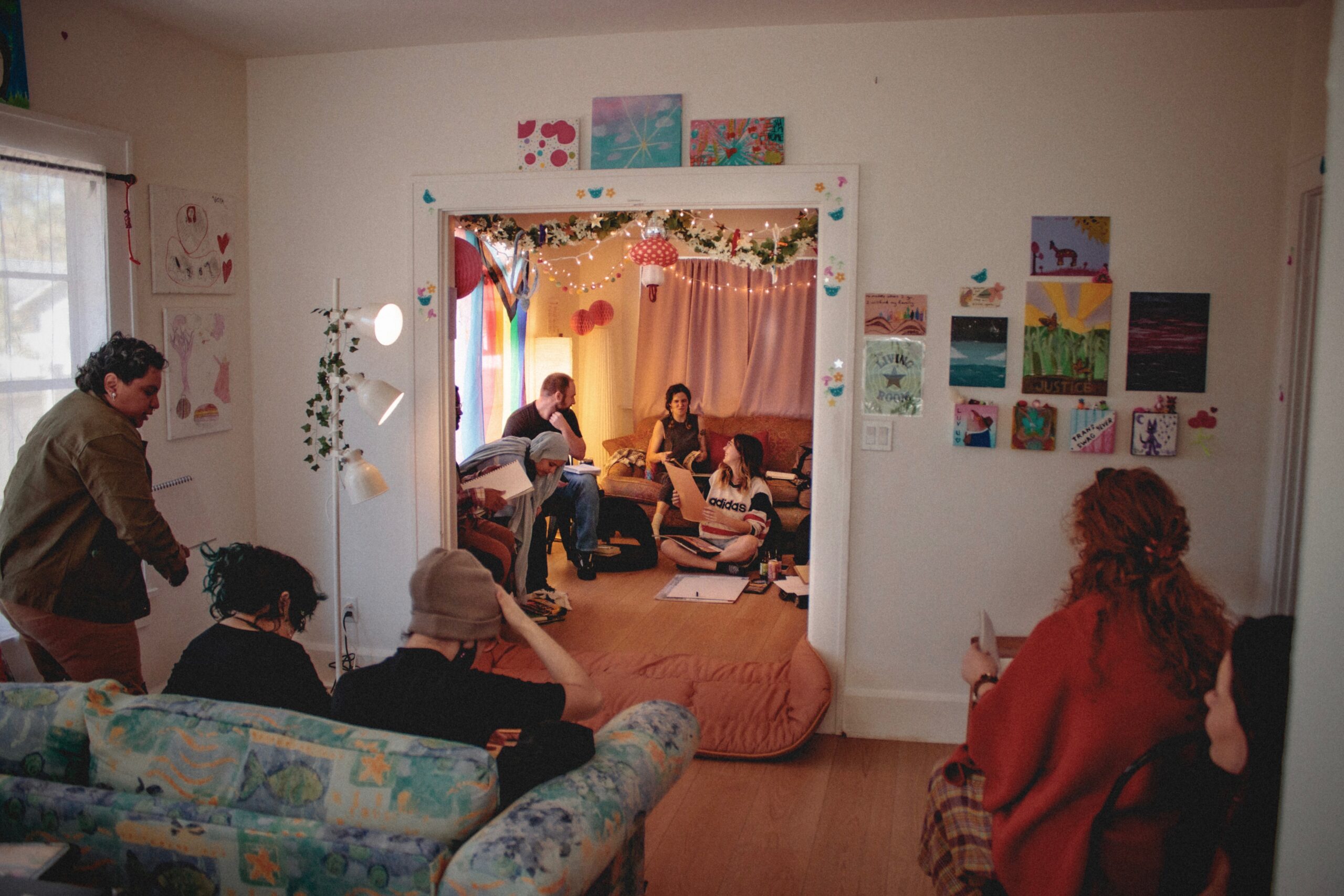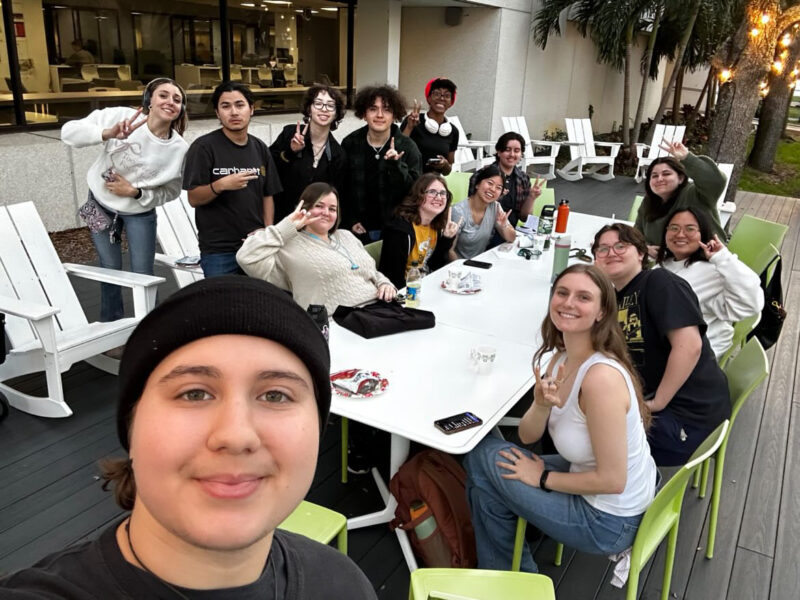Beyond the table piled high with baked delectables—peach cobbler, coffee cake, whole wheat scones and homemade pumpkin muffins with cream cheese—students were learning to connect the abstract causes from public policy to the concrete effects in the community.
Students from Professor Dawn Cecil’s Gender and Crime course organized a bake sale and a clothing drive to support CASA, an organization dedicated to preventing domestic abuse and providing funding for women’s shelters nationwide. Education through doing is part of a method of learning called citizen scholarship, which is gaining traction as a better way to engage students.
Citizen scholarship “get(s) students out of the classroom and into the community,” said Judithanne Scourfield McLauchlan, founding director of the Center for Civic Engagement. During the fall 2011 semester, 28 percent of courses at USFSP, 60 in total, have a civic engagement component. The center’s mission since its founding in 2006 is for “every student that comes to USFSP to take at least one citizen scholar course,” McLauchlan said.
“I am a huge proponent of experiential learning,” she said.
McLauchlan, a political science professor, directs the “Road to the White House” course, where students spend a semester working for a presidential primary campaign. The walls of her office are covered in mementos from her citizen scholar programs—a photo covered in thank-you notes of USF students shaking hands with President Bill Clinton, a shot of her sharing the stage with Bill and Hillary Clinton in the Rose Garden, and a photo from inside the Oval Office.
“When you’re out there in the field … you can put what you’re learning into practice,” she said. “There is no substitute for that.”
The citizen scholar program grew from McLauchlan’s experiences in the classroom. When she taught American National Government, a required class, she first taught it as a typical lecture class. It was difficult, however, to get students to connect to the material. When she required a campaign internship as part of the course material, the students’ reaction was “remarkable,” she said.
“The experience … dramatically increased the students’ interest in participating in government and their willingness to take an active role as citizens,” she wrote in the paper “Learning Citizenship by Doing,” which documented her experience.
“Too often education occurs in the bubble of the classroom and here, especially since we are an urban campus, you have so many resources in the surrounding community to learn from and contribute to,” said Cecil, whose students raised almost $200 from their bake sale and filled over a dozen plastic bags with donated clothing.
Cecil uses her service-learning component to show students not only the statistics and stories of women caught in the criminal justice system, but to show the cause and effect that leads to incarceration.
Since women commit fewer crimes than men, there are fewer resources dedicated to their incarceration. Women’s prisons tend to be further from their home and have fewer quality of life and personal betterment programs, but “things are starting to change a little bit,” Cecil said.
As a result of women’s shelters, there are fewer partner homicides, she said, a trend that has shown itself in the last 10 to 15 years. Women now have ways to escape from bad situations.
For women, “victimization and conviction are tied together,” she said. Female offenders are very likely to have been victims of abuse.
Civic engagement projects in the classroom also have other benefits, McLauchlan said. She is working to quantify the benefits of these projects on student employment, but anecdotally, “many students get hired through these opportunities,” she said.
“Teaching a citizen scholar course is a lot more work” for the instructor, and expensive, she said. Her role is to help instructors craft integrated service learning projects as a part of the class, not something that’s “tacked on,” and to help them manage the organizational difficulties.
To ease the money burden, the center gives out funds from a 3-year, $390,000 grant received from Learn & Serve America, which has since been defunded by Congress. This money dries up after the spring 2011 semester, but McLauchlan is convinced the program will find a way.
USFSP earned the “Community Engagement Classification” from the Carnegie Foundation for the Advancement of Teaching, in Jan. 2011. It shared this distinction with 311 other universities in the country. “This sets USFSP apart: civic engagement across the curriculum,” McLauchlan said.
Photo by Christopher Guinn



